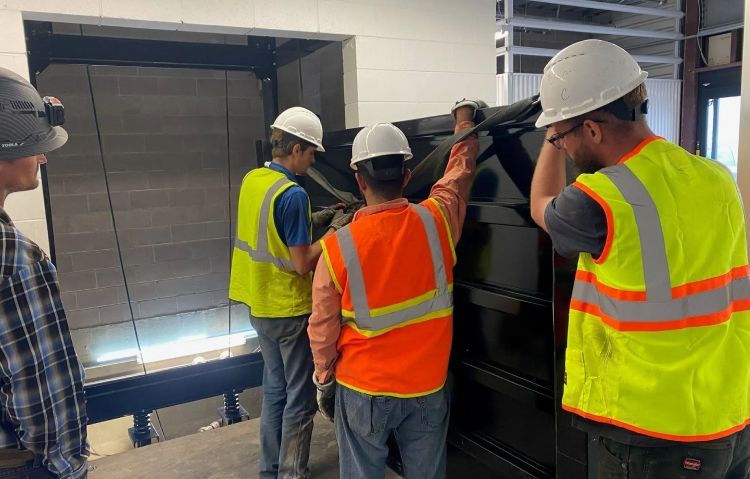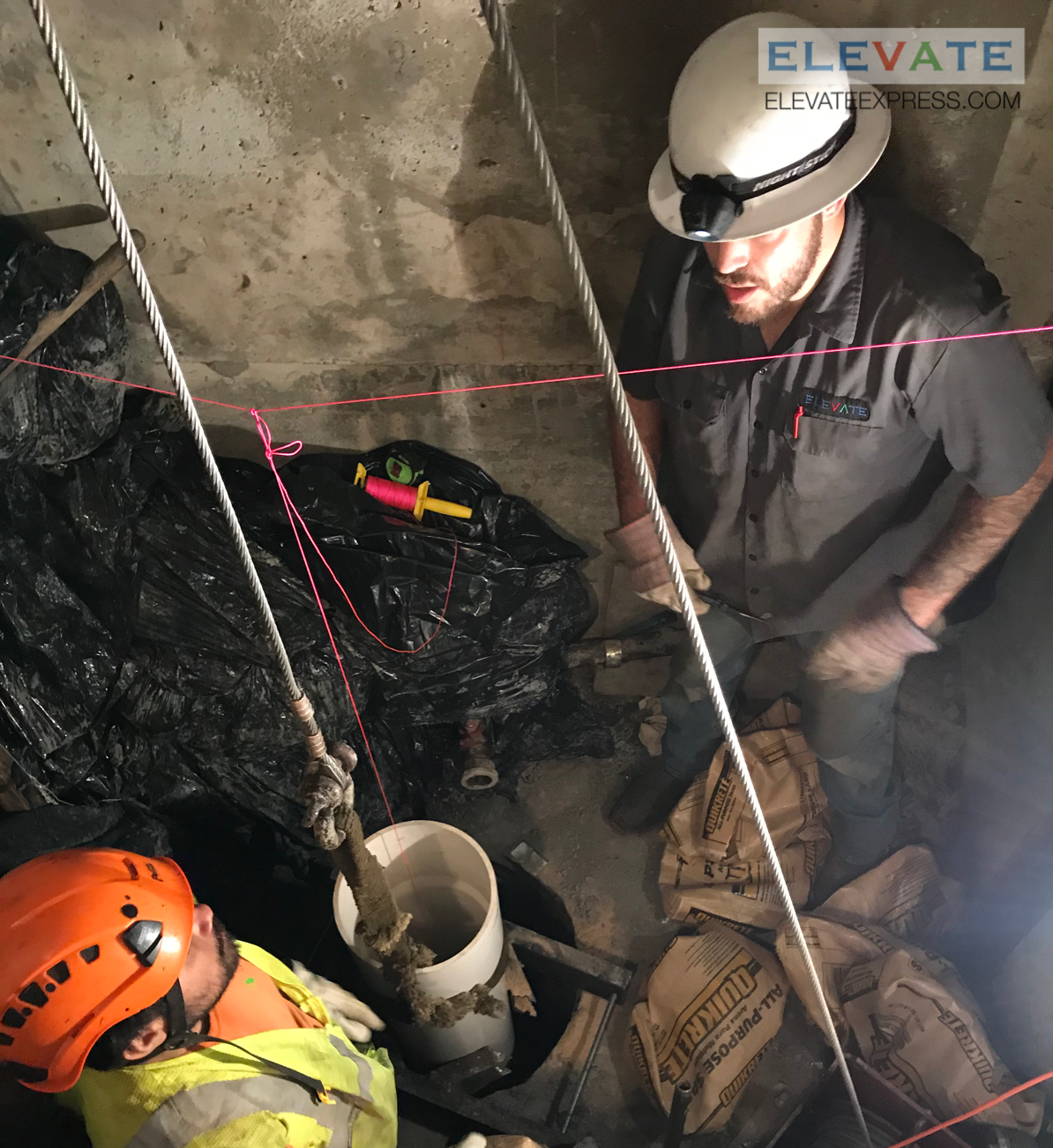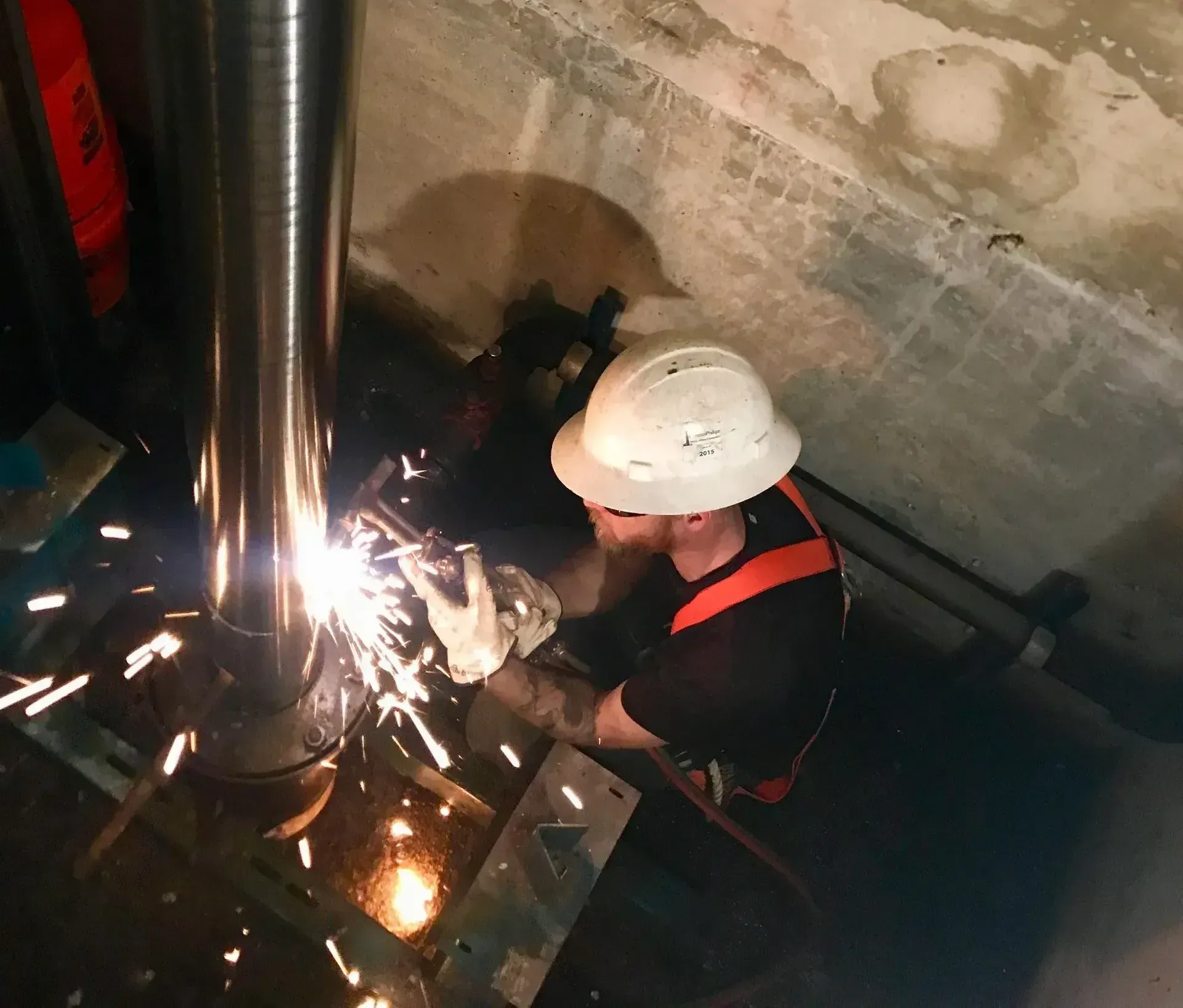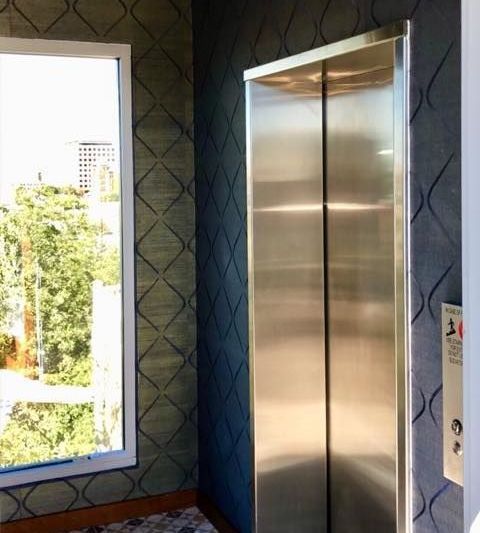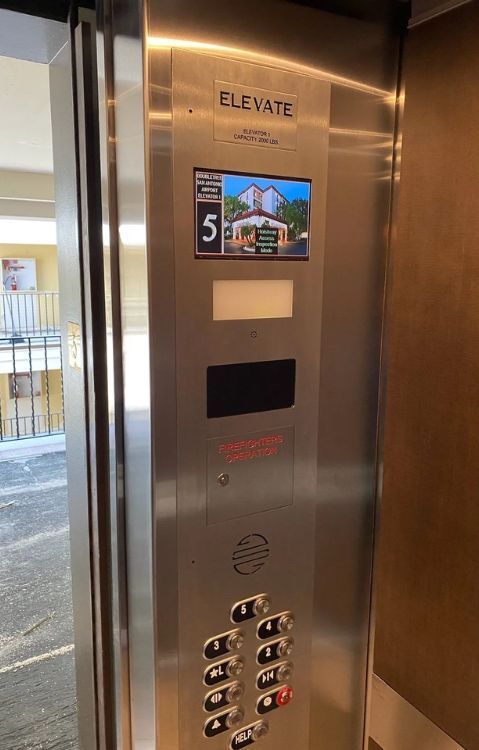ADA Compliance for Elevators: What Building Owners Should Know
As accessibility takes on greater importance, ADA-compliant elevators have become a must—not just a nice-to-have. It’s not only about making room for wheelchairs. True compliance covers everything from layout and controls to how the system operates day to day. These thoughtful details make a big difference in ensuring safety, independence, and equal access for every person who uses your building.
In a city like San Antonio—where destinations like the River Walk are already investing in accessible infrastructure—keeping your building up to code means staying in step with a community-wide commitment to inclusivity. This guide breaks down what ADA compliance ADA compliance really means for your elevators—and how Elevate Enterprises can help you meet those standards.
Why ADA Compliance Matters
Making your elevators ADA-compliant isn’t just about following the law—it’s about creating a space that works for everyone. It shows that your building is safe, welcoming, and built with modern accessibility in mind.
Improves Accessibility for Everyone
Making your elevators ADA-compliant means every person—whether they use a wheelchair, walker, or simply need extra time—can access your building safely and independently. It’s a practical way to ensure your space works for everyone, from employees to visitors, and it shows that you’ve thoughtfully considered the needs of all who enter.
Reduces Liability and Risk
Overlooking ADA compliance can open the door to lawsuits, fines, and other costly consequences. Taking a proactive approach not only keeps your property in line with current regulations—it shows responsibility. You’re not just avoiding penalties; you’re ensuring your building is safe, inclusive, and legally sound. It’s a smart move that brings peace of mind and long-term protection.
Shows You Value Inclusion
Making your elevators accessible tells people that everyone matters in your building. It’s more than just following the rules—it’s a reflection of your values. When you provide equal access, visitors and tenants take notice. It shows respect, thoughtfulness, and a real commitment to inclusion. And that kind of care can shape how your property is viewed for years to come.
Boosts Property Value Through Modernization
ADA upgrades often involve smart, modern features that make your elevator easier to use and more visually appealing. These improvements go a long way in making your building more attractive to tenants, buyers, and visitors. A well-designed, accessible elevator isn’t just about compliance—it’s a signal that the property is cared for, up-to-date, and built with everyone in mind.
San Antonio’s Disability Access Office actively supports compliance efforts. As a building owner, aligning your property with both federal law and local standards helps future-proof your investment—and ensures your building serves everyone.
What Does ADA Elevator Compliance Include?
The Americans with Disabilities Act (ADA) sets clear standards for elevators in public, commercial, and multi‑family buildings. These requirements go well beyond basic size specifications, covering a range of features, including:
- Elevator cab size
- Button layout and height
- Door operation timing
- Audio and visual alerts
- Emergency communication systems
Meeting these criteria ensures your elevators are safe, usable, and welcoming to everyone, including people with mobility, visual, or hearing impairments.
Key ADA Requirements for Elevators
Let’s look at the core features that determine whether an elevator meets ADA standards.
1. Cab Size and Door Width
To allow space for wheelchairs:
- Cab depth: At least 54 inches
- Cab width: At least 36 inches
- Doorway width: Minimum of 36 inches when open
2. Door Timing and Controls
Doors need to operate in a way that accommodates slower-moving passengers.
- Open time: Doors must remain open for at least 3 seconds
- Automation: Door openers should move slowly and predictably
3. Button Placement and Readability
Elevator buttons should be accessible for all users.
- Height range: Between 15 and 48 inches from the floor
- Markings: All buttons must include braille and raised text
4. Auditory and Visual Indicators
To support riders with visual or hearing impairments:
- Audible announcements of floors and door actions
- Visual displays showing current floor and direction
5. Emergency Communication
Everyone should be able to request help in an emergency.
- Hands-free use: No handset should be required
- Visual signals: Confirmation lights to show the call went through
Why ADA-Compliant Elevators Benefit Building Owners
Besides avoiding legal trouble, ADA-compliant elevators offer real advantages:
- Better tenant and visitor experience through ease of use
- Stronger appeal for commercial and residential tenants who value accessibility
- Risk reduction by addressing compliance proactively
- Increased property value thanks to modern, inclusive upgrades
At Elevate Enterprises, we help building owners not only meet the law—but exceed expectations.
How to Make Your Elevators ADA-Compliant
Step 1: Thorough Inspection and Evaluation
We start by taking a close look at your current elevators—everything from cab size to button height. Our team identifies exactly where improvements are needed through detailed elevator code compliance inspections.
Step 2: Custom-Fit Compliance Plan
Every building is different. Once we complete our evaluation, we create a tailored compliance plan that works with your layout, usage patterns, and goals—so nothing is overlooked.
Step 3: Retrofitting and Upgrades
Whether your elevators need a few targeted improvements or a full modernization, we have the expertise to deliver.
- Installing user-friendly control panels within easy reach
- Adjusting door timings for safe, smooth entry and exit
- Adding or enhancing audio and visual indicators for improved accessibility and clarity
Step 4: Ongoing Maintenance and Support
Compliance doesn’t end with installation. We provide flexible, ongoing maintenance and support to keep your elevators running reliably for the long term — addressing minor issues before they become costly problems and making sure your equipment stays safe, functional, and aligned with current standards.
Common ADA Compliance Challenges—and How We Solve Them
Even with the best intentions, bringing elevators up to ADA standards can be tricky. Here are a few common hurdles—and how Elevate Enterprises helps you clear them.
Tight Spaces in Older Buildings
Historic or older buildings often weren’t designed with accessibility in mind. Our team specializes in clever, space-saving retrofits that bring your elevator up to code—without tearing down walls or disrupting your building’s character.
Budget Concerns with Retrofitting
ADA upgrades don’t have to strain your budget. We deliver cost‑effective, flexible solutions tailored to your property’s needs and resources — making sure you get the accessibility you require, without compromising quality, safety, or compliance.
Keeping Accessibility Features Working Long-Term
Features like door timing, control panels, and audio signals wear out over time. That’s why we offer dependable maintenance plans to keep your elevator safe, functional, and fully compliant—year after year.
⚠️ Note for Texas Property Owners: Not every lift is covered under ADA. Freight elevators, dumbwaiters, and certain construction lifts may be exempt. Our team can help you navigate Texas-specific regulations.
Future Trends in Accessible Elevator Design
ADA regulations continue to evolve—and so does elevator tech. Here are some innovations building owners should watch:
- Touchless and smart elevator controls for hands-free operation
- Voice command systems for users with limited mobility
- Enhanced digital displays that improve visual accessibility
- AI-enhanced monitoring for smarter, safer elevator functions
We stay up to date so you don’t have to—our job is to future-proof your system.
How Elevate Enterprises Supports ADA Elevator Compliance
At Elevate Enterprises, we don’t just fix elevators—we make sure they serve everyone safely, reliably, and in full compliance with ADA standards. Our team is here to help you every step of the way.
ADA Compliance Audits
We thoroughly inspect your elevator systems and identify any areas that fall short of current accessibility standards. This is especially valuable in a city like San Antonio, where local officials actively promote ADA enforcement.
Smart Retrofitting for Older Elevators
Working with older or space-limited buildings? No problem. We design thoughtful, code-compliant solutions that bring your elevator up to ADA standards—without major structural changes.
Ongoing Maintenance Plans
ADA compliance doesn’t end with installation — it’s an ongoing commitment. We provide flexible maintenance programs to keep your elevators running smoothly and reliably, addressing minor issues early so they never become costly or disruptive problems later.
Trusted ADA Expertise
Our team stays current with changes to ADA regulations and local building codes. When you partner with us, you’re always ahead of the curve and fully informed.
Frequently Asked Questions
What are the rules for elevator button height?
Elevator buttons must be easy to reach for all users. The topmost button should be no higher than 48 inches from the floor, while the lowest should be at least 15 inches up. To assist those with visual impairments, every button needs to include braille and raised lettering. These details ensure your elevator is usable by everyone who enters.
Does every building need ADA-compliant elevators?
Most commercial, public, and multi-family residential buildings are required to follow ADA guidelines. That said, certain exceptions may apply—especially for historic structures where modifications are limited. Local building codes also influence what’s needed, so it’s smart to check with your local officials or a compliance expert to be sure your property meets all relevant accessibility requirements.
How often should I maintain my ADA-compliant elevator?
Routine maintenance helps keep your elevator functioning properly and meeting ADA standards. Monthly or quarterly inspections are ideal, depending on usage. These checkups make sure things like button functionality, door timing, and audio/visual indicators stay in working order. Catching minor issues early prevents costly breakdowns down the line and keeps your elevator running smoothly and safely for every passenger.
Can old elevators be upgraded to meet ADA standards?
Absolutely. Many older elevators can be modified to comply with ADA guidelines without needing full replacement. Common upgrades include adding braille-labeled control panels, adjusting door operation timing, installing audible signals, and increasing doorway clearance. Even buildings with tight layouts can often be retrofitted with smart solutions that bring systems into compliance while respecting the space and structure already in place.
Make Your Building More Inclusive—Starting Today
ADA compliance isn’t just about following the rules—it’s about doing what’s right for your tenants, your visitors, and your property’s long-term success. When you work with Elevate Enterprises, you’re choosing a team that values safety, accessibility, and reliability as much as you do.
Ready to upgrade your elevators for ADA compliance? Let’s talk.
We offer on-site assessments, retrofitting services, and maintenance plans tailored to your building.
📞 Call us or schedule a free consultation today—your accessible elevator is just a few steps away.

